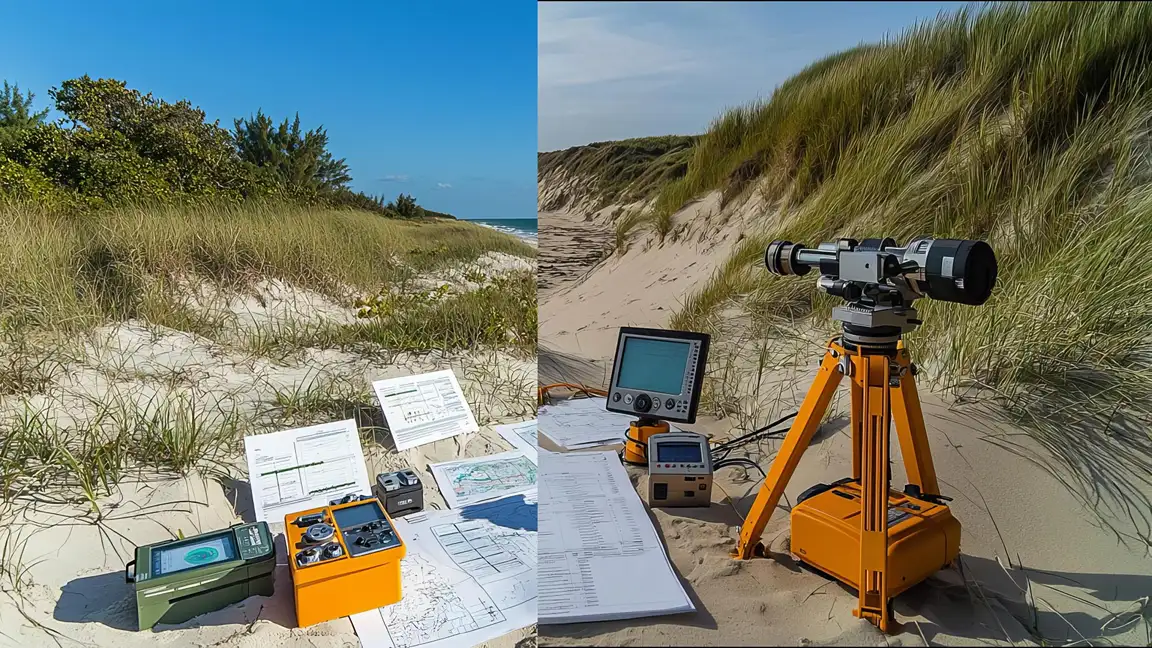Introduction
In a significant step towards modernizing maritime education, the Netherlands is introducing advanced mobile dredging simulators, making realistic and practical training more accessible across the country. This initiative promises to revolutionize how students are trained in the dredging industry, offering hands-on learning experiences that are both flexible and safe. Let’s explore how these simulators will enhance maritime education and contribute to the development of future dredging professionals.
The Role of Dredging Simulators in Maritime Education
Dredging is an essential part of maintaining navigable waterways, harbors, and coastal regions. However, effective dredging requires a blend of technical knowledge, decision-making skills, and practical experience. Traditionally, these skills were honed through on-site training, which can be expensive, hazardous, and often limited by location. Enter dredging simulators: state-of-the-art technology designed to replicate real-world dredging operations in a virtual environment.
Dredging simulators offer students an opportunity to practice techniques, understand equipment functionality, and make critical decisions in a safe, controlled setting. These high-tech systems allow learners to experience scenarios ranging from routine dredging operations to emergency responses, all without leaving the classroom. By using these simulators, students can gain practical experience that enhances their understanding and prepares them for the challenges they’ll face in the industry.
Mobile Dredging Simulators: Enhancing Accessibility
One of the standout features of this project is the introduction of mobile dredging simulators. Traditionally, simulators were large, fixed systems confined to specific training locations. However, with the mobile dredging simulators, this technology is now more flexible, allowing it to be transported across the country to various maritime schools.
Mobile dredging simulators ensure that students from even remote locations have access to high-quality training. Instead of requiring costly trips or the need to relocate to a specific training center, maritime students can now experience realistic dredging training in their own localities. This flexibility not only makes the technology more accessible but also ensures that practical education in the dredging industry is available to a broader range of students, regardless of their location.
Partnerships Driving the Project
This groundbreaking project is the result of a collaboration between several key players: Dutch Dredging Simulators (DDS), Controllab, De Klop BV, and MSA-Services. These experts in simulation technology have combined their knowledge and resources to create a suite of cutting-edge dredging simulators.
Arnold den Boon, CEO of DDS, emphasized that the technology was developed with the goal of providing “an unprecedented realistic representation of dredging operations,” enabling students to train as effectively as possible. This specialized approach ensures that students receive the most relevant and high-quality training available.
In addition to DDS, STC Rotterdam (Seafaring and Transport College), a key institution in maritime education, is a prominent player in this initiative. The college will be equipped with a mix of mobile and fixed simulators to offer students hands-on experience in dredging operations. Nova College, another prominent maritime institution, will also benefit from a mobile dredging simulator that can be used at its campuses in both IJmuiden and Beverwijk.
Impact on Maritime Schools Across the Netherlands
The introduction of these mobile dredging simulators will significantly benefit maritime schools across the Netherlands. STC Rotterdam will receive one mobile and three fixed simulators, providing students with the ability to learn both at the college’s main campus and through on-the-go training. This setup ensures that students have access to high-quality simulation training, whether they are on-site or in remote areas.
Furthermore, Nova College will use its mobile dredging simulator to provide flexible training options, supporting seafaring education in IJmuiden and technical training in Beverwijk. This move enhances the college’s ability to cater to a wide array of students and further cements its role in maritime education.
An important aspect of this project is the emphasis on accessibility. The mobile dredging simulators will not only be available at major maritime institutions but also accessible to other schools across the Netherlands. STC Rotterdam will coordinate the distribution of these mobile units, ensuring that maritime education is available to students regardless of their location. This initiative supports inclusivity and guarantees that students in smaller or more distant communities have access to the best training technology available.
Conclusion
The integration of mobile dredging simulators into maritime education in the Netherlands represents a major step forward in providing future professionals with the tools they need to succeed. By allowing students to practice in a safe, controlled, and realistic environment, these simulators enhance the learning experience, ensuring that students are well-prepared for the technical and decision-making demands of the dredging industry.
This initiative also ensures that students, regardless of where they are located in the Netherlands, will have the chance to experience hands-on training in dredging operations. As a result, it will pave the way for a new generation of maritime professionals equipped with the skills and knowledge to thrive in an increasingly complex industry.
With the first mobile dredging simulator set to be delivered before the summer holidays and full deployment by the 2025/2026 school year, the future of maritime education in the Netherlands looks bright, innovative, and accessible for all students.
